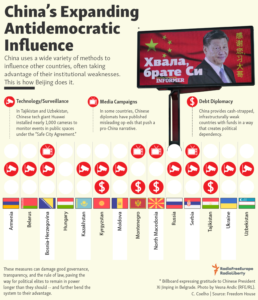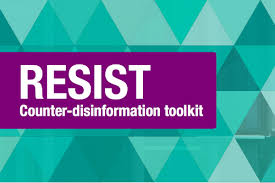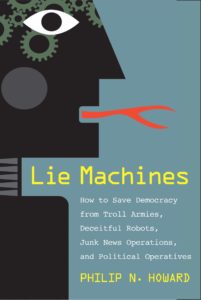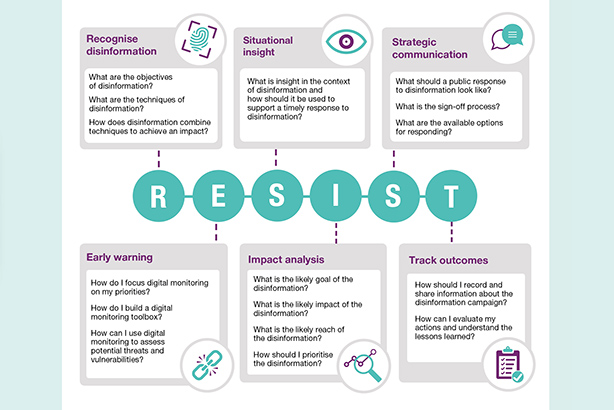
This is an extraordinarily tense moment in the United States as authoritarian states jeer at us, and friends pity us, says Kori Schake, director of foreign and defense policy at the American Enterprise Institute.
The head of the venerable Council on Foreign Relations considers the U.S. a “power in retreat.” Some commentators compare the protests to uprisings against Middle East dictators, because in both cases, protesters believe that, as the writer Steven A. Cook has put it, “political institutions of the state and the prevailing social orders had combined to rob them of their dignity.” American diplomats are evidently struggling to justify our country as a functioning democracy, she writes for The Atlantic.
“Our struggles are the world’s struggles, because the values that form our republic are universal values,” Schake contends. “We believe that people have inherent rights and allow governments to curtail them in limited ways only for agreed purposes.”
Dictators rule by controlling the “power ministries”: the domestic police and intelligence services, foreign intelligence services, and armed forces, adds Brookings analyst Robert Kagan. U.S. democracy has been sustained by a strong tradition of ensuring that the power ministries serve the Constitution and the broader interests of the American people.
Chinese media mocked the U.S. over its handling of the current protests, using political cartoons and tweets to accuse Washington of hypocrisy for criticizing China in the past over its crackdown on protesters in Tiananmen Square 31 years ago, and more recently, in Hong Kong, notes Forbes analyst Sergei Klebnikov.
“The timing couldn’t have been better for China,” since it faces its own protests in Hong Kong, Rodger Baker, senior vice president of strategic analysis at Stratfor, tells Forbes; it allows the Chinese government to “send a message to its people: ‘at least we’re putting things in order in Hong Kong, so how can the U.S. yell at us?’”

RFE/RL
“The more they can point out hypocrisy, the more influence China is ultimately able to exert in reshaping international norms,” says Baker. China is hoping to change the structure of the international order “by highlighting that the West isn’t as perfect as it’s made out to be,” he says… As for Russia, its tactics can be traced back to the Cold War, Baker says: The Soviet Union was “constantly emphasizing anomalies in U.S. history and pointing out that they have no moral standing to tell the rest of the world what to do.”
The Kremlin is“enjoying” the unrest in the United States because it gives them the opportunity to get their own propaganda messages across and helps deflect criticism of its human rights record and its own security services, Ivan Kurilla, an expert on U.S.-Russia relations at the European University in St. Petersburg, told The New York Times.
Russia and China are fighting losing battles on history and geography, argues CEPA’s Edward Lucas. Like First World War generals obsessed with trench warfare, the decision-makers in Beijing and Moscow are squandering their resources—and giving their adversaries easy targets. The more the regimes push their lies, the more obvious the truth becomes. In the end, the truth will triumph.
 The British government today published its new RESIST Counter Disinformation Toolkit, designed to help support the dissemination of reliable, truthful information that underpins democracy. RESIST stands for (Recognise disinformation, Early warning, Situational Insight, Impact analysis, Strategic communication, Track outcomes – see below).
The British government today published its new RESIST Counter Disinformation Toolkit, designed to help support the dissemination of reliable, truthful information that underpins democracy. RESIST stands for (Recognise disinformation, Early warning, Situational Insight, Impact analysis, Strategic communication, Track outcomes – see below).
Russia and China are flooding social media with content targeting the ongoing unrest and violence in the United States, according to an analysis of recent Twitter posts by POLITICO:
Since May 30, government officials, state-backed media outlets and other Twitter users linked to either Beijing or Moscow have increasingly piggybacked onto hashtags linked to George Floyd, the Minnesota man whose death in police custody last week set off days of nationwide protests, to push divisive messages and criticize Washington’s handling of the unfolding crisis.
“Russia is doing right now what Russia always does,” said Bret Schafer, a media and digital disinformation fellow at the German Marshall Fund of the United States’ Alliance for Securing Democracy, a think tank in Washington. “But it’s the first time we’ve seen China fully engaged in a narrative battle that doesn’t directly affect Chinese interests.”
 There are significant historical parallels between the present moment and prior episodes of unrest, particularly in the 1960s, argues Jamila Michener, author of Fragmented Democracy: Medicaid, Federalism and Unequal Politics and Assistant Professor of Government at Cornell University. But, she tells TIME:
There are significant historical parallels between the present moment and prior episodes of unrest, particularly in the 1960s, argues Jamila Michener, author of Fragmented Democracy: Medicaid, Federalism and Unequal Politics and Assistant Professor of Government at Cornell University. But, she tells TIME:
One misconception that persists and that warrants correction is the notion that these protests are irrational and emotional behavior stemming from anger over one incident. There is certainly no shortage of anger over the killing of George Floyd. Overall, however—and history bears this out—mass protests like this reflect organization, mobilization and coordination that is intentional and deeply political. As was the case in the 1960s, the protests unfolding right now are a referendum on the glaring inadequacies of American democracy.
It’s appropriate to share Ta-Nehisi Coates’s optimism about where we are going as a country given some tentative and not-so-tentative trends that have become apparent over the past week or so, adds Tufts University’s Daniel Drezner.
A forthcoming online forum at the National Endowment for Democracy will discuss Lie Machines….., the new book by Philip Howard, director of the Oxford Internet Institute.
 FEATURING
FEATURING
Philip Howard, Oxford Internet Institute
Laura Rosenberger, Alliance for Securing Democracy
Daniel Arnaudo, National Democratic Institute for International Affairs
MODERATED BY
Shanthi Kalathil, International Forum for Democratic Studies
June 10, 2020. 11:00 am – 12:00 pm RSVP








